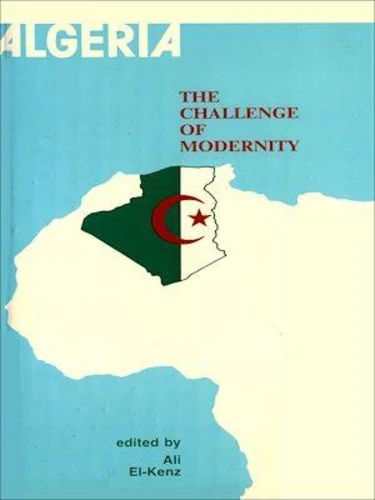Algeria. the challenge of modernity
Par :Formats :
Disponible dans votre compte client Decitre ou Furet du Nord dès validation de votre commande. Le format ePub est :
- Compatible avec une lecture sur My Vivlio (smartphone, tablette, ordinateur)
- Compatible avec une lecture sur liseuses Vivlio
- Pour les liseuses autres que Vivlio, vous devez utiliser le logiciel Adobe Digital Edition. Non compatible avec la lecture sur les liseuses Kindle, Remarkable et Sony
 , qui est-ce ?
, qui est-ce ?Notre partenaire de plateforme de lecture numérique où vous retrouverez l'ensemble de vos ebooks gratuitement
Pour en savoir plus sur nos ebooks, consultez notre aide en ligne ici
- Nombre de pages365
- FormatePub
- ISBN978-2-86978-967-8
- EAN9782869789678
- Date de parution01/01/2020
- Protection num.Digital Watermarking
- Taille788 Ko
- Infos supplémentairesepub
- ÉditeurCODESRIA
Résumé
The 1960s and most of the 1970s in Algeria were characterized by a mood of success and optimism as stated in « The Algerian Charter ». However, this over-all mood altered in the 1980s when the economic crisis triggered a far-reaching social and political change as can be testified by the outstanding October 1988 uprise and the subsequent modifications in the political structure. This book which is written by a multi-disciplinary team of Algerian social scientists brilliantly analyzes the post-independence social transformations in Algeria.
The authors investigate the new development orientations, state disengagement, the changeover from industrialization as « prime mover » of development to deindustrialization, a new agricultural reform, a fundamental re-structuration of civil society and its relations with the state - thus marking the end of populism -, so as to portray the deep ongoing changes in Algeria.
The authors investigate the new development orientations, state disengagement, the changeover from industrialization as « prime mover » of development to deindustrialization, a new agricultural reform, a fundamental re-structuration of civil society and its relations with the state - thus marking the end of populism -, so as to portray the deep ongoing changes in Algeria.
The 1960s and most of the 1970s in Algeria were characterized by a mood of success and optimism as stated in « The Algerian Charter ». However, this over-all mood altered in the 1980s when the economic crisis triggered a far-reaching social and political change as can be testified by the outstanding October 1988 uprise and the subsequent modifications in the political structure. This book which is written by a multi-disciplinary team of Algerian social scientists brilliantly analyzes the post-independence social transformations in Algeria.
The authors investigate the new development orientations, state disengagement, the changeover from industrialization as « prime mover » of development to deindustrialization, a new agricultural reform, a fundamental re-structuration of civil society and its relations with the state - thus marking the end of populism -, so as to portray the deep ongoing changes in Algeria.
The authors investigate the new development orientations, state disengagement, the changeover from industrialization as « prime mover » of development to deindustrialization, a new agricultural reform, a fundamental re-structuration of civil society and its relations with the state - thus marking the end of populism -, so as to portray the deep ongoing changes in Algeria.



